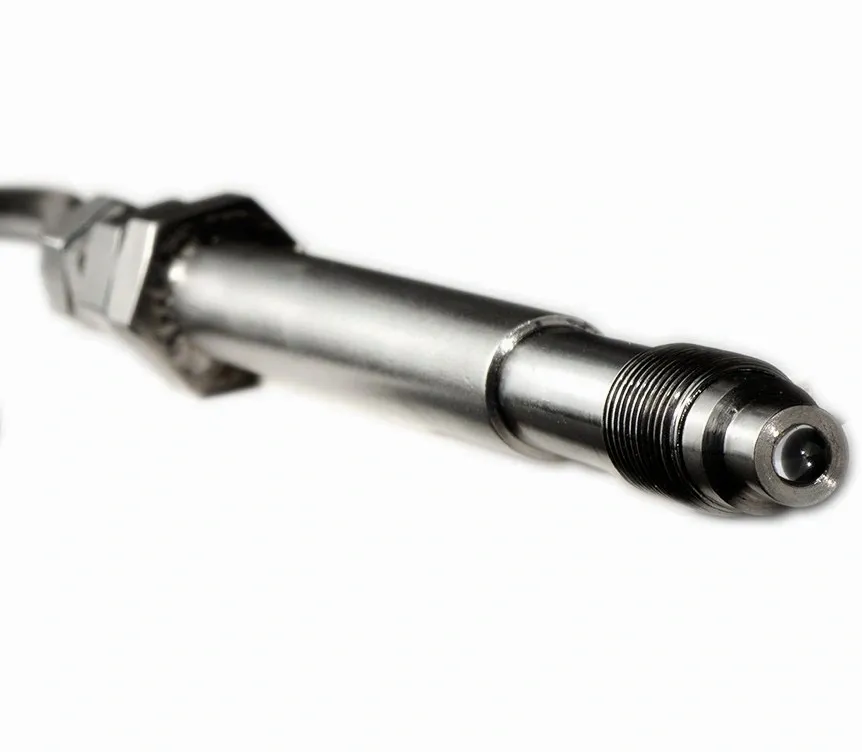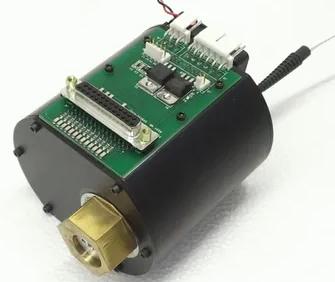 |
 |
 |
 |
 |
|
| |

|
|
|
|
|

| |
|
|
|
|
|

|
|
|
IN-LINE PROCESS SPECTROPHOTOMETER SPECIFICATIONS
- Millennium 3 UV-VIS with CCD
- Spectrum (Reflectance): 380 through 780 nm
- Spectrum (Transmission): 220 through 820 nm (Optional)
- Resolution: 1 nm
- Spectrometer: Optical Grating
- Number of Beams: 4-Channel Technology (2 Measurement & 2 Reference Channels)
- Interface for 2 Probes (Optional)
- Measuring Time: 10 ms
- Regular Measurement Interval: 1s or more (Freely Adjustable)
|
|
|
|
Illumination
- Xenon Flash Lamp (One for Each Probe with Flash Control)
- Calibration: White and Black Standard Made of Ceramic or Light Trap + Green Check Standard
- Color Scales: CIE-L*a*b*, CIE-L*C*h, CIE-94, CIE-2000, CMC (l:c), FMC, HunterLab, XYZ, xyY
- Other Indexes: Whiteness CIE, Whiteness E313, Yellowness D1925, Yellowness E313
- Illumination: A, C, D50, D65, F2 (CWF), F11 (TL84) (Other Options Available Upon Request)
|
|
Computer
- Operating system: Windows 10 (Professional, Enterprise, Ultimate)
- Integrated Industrial PC & 15" Touchscreen
|
|
Physical Setup & Dimensions
- Interfaces: 3x USB, 1x Ethernet, 32GB SSD, Low Power, Fanless
- Voltage: 230V, 50Hz (EU) or 120V, 60Hz (US)
- Environment Conditions: 5 to 40 C (Non-Condensing)
- Dimensions: 610 (W) x 510 (H) x 300 (D) mm with Air Condition Unit TEHC
- Weight: 55 kg with Air Condition Unit TEHC
|
|
|
|
|
|
|

|
|
|
SOFTWARE UTILITIES
EquiColor
- Used with the Equispec Inline Color Spectrophotometer (OCS), EquiColor
- Enables operators to monitor L*, a*, b* under a series of illuminants and observers.
- Ensures that production batches are within tolerance ranges of approved standards.
- Security features allow production managers or process engineers to set standards and tolerances while letting operators use, access and recall previous operational files without affecting their settings.
- Saves all measured color values and tolerances for every job in a single file, allowing operators to review such file at any time in the future.
|
|
|
|
EquiChem
- Used with the Equispec Chemical Process Analyzer (CPA), EquiChem
- Provides for complete configuration, data collection and plotting, including residuals, statistics, predictions and errors, and calculation and prediction of results.
- A variety of chemometric techniques such as Multiple Linear Regression, Classical Least Squares, Principal Component Regression, and Polynomial Least Squares are used within the program
- All models may be used online to provide real-time predictions of chemical concentrations.
|
|
EquiFilm
- EquiFilm is used with the Equispec Film Thickness Analyzer (FTA)
- Designed to measure film thickness continuously in real time in a range of 0.5 to 300 microns.
- Extremely easy to use and reliable software.
- Up to 5 layers in a multilayer product can be measured simultaneously.
- Equipped with alarms to alert operators to off-spec products.
|
|
|
|
|
|
|

|
|
|
OPTICAL FIBER CABLES
Custom Optical Fiber Assemblies
- Made from both non-solarizing UV-grade optical fiber and ultra-low OH content NIR-grade optical fiber.
Materials
- Silica core/silica clad fiber.
Diameters
- Core diameters of 100, 200, 400 or 600 microns. Other core sizes may be available upon request.
Terminations
- Standard termination is SMA 905. FC and other terminations are available upon request.
Construction
- Optical fiber assemblies are loose tube construction, and protected by stainless steel monocoil armor with a PVC or Teflon outer sleeve.
Length
- Lengths from 1 to 50 meters.
|
|
|
|
|
|
|
|
|
|
|
|
General Information
What can we measure with your equipment?
- Inline Color Measurement, Inline Chemical Concentration, and Inline Film Thickness.
All these measurements are performed in real-time without the need to prepare samples.
What sample types can Equitech measure?
- Solids, Liquids, Pastes, Slurries, Molten Polymers, Gels, and Gases
Do Equitech probes work in corrosive environments?
- Yes - besides the standard SS, probes may be constructed of Hastelloy, Ti, or PEEK.
Contact Equitech with your specific requirements.
Does Equitech produce NIR probes?
- Most of Equitech's probes may be made in NIR versions using NIR optics and optical fiber.
Can Equitech do closed loop color control?
- Yes, we have used the L* measured value as a feedback loop to give customers closed-loop L to control their color feeder.
How often do I need to do maintenance on the system?
- With no moving parts, the system typically needs no maintenance. The flashbulbs will eventually expire and will require replacement. The bulb replacement could happen as an annual event but typically will last two to four years (depending on measurement frequencies).
How fast can the Equispec measure?
- The shortest possible measurement interval depends on the exposure time and the number of exposures that are averaged together for a measurement. For a very efficient probe, this can be as short as 1 second; for a less efficient probe type this can be 2 - 3 seconds.
What is the temperature range for the probes and system?
- An Equitech analyzer is designed for use under ambient temperatures ranging from 15 - 45 C. Most probes are designed to operate from 0 - 260 C. Melt probes can function at temperatures up to 500 C.
What is the pressure range?
- Melt probes operate at pressures up to 5000 psi. Most other probes have a pressure limit of 3000 psi.
Will the Equispec measurement match my laboratory measurements?
- The goal of the process color measurement is to provide real-time indication of color values (L*, a, b) that can be used to control the process. Because process color measurements are performed at a different temperature and in most cases under a different optical geometry than the laboratory color measurement, then, in absolute values, the numbers cannot be the same. However, when laboratory color values are entered into EquiColor, the software uses the laboratory values to simulate process color values that are used to maintain the process under control.
What is the system's accuracy?
- Color accuracy is generally +/- 0.25 units L*, a* or b*.
|
|
|
|
|
|
|
|
|
| |
|
|
 |
|
|
|
|
|
|
|
|
| |
|
|
|
|
|
|
|
|
|
|
|
|
|
|
|
|
|
|
 |



















|

